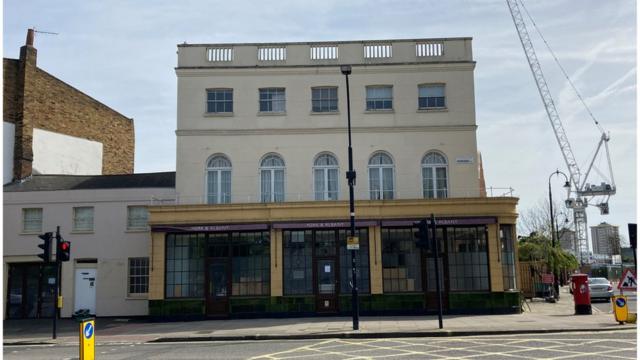
Last month, bailiffs evicted squatters from celebrity chef Gordon Ramsay’s vacant London pub after they set up camp in the Camden watering hole. Ramsay obtained an order from the High Court last Thursday after the squatters refused to leave the premises.
The incident attracted media attention after a group of men and women decided to enter the empty £13million York & Albany Grade II listed pub in North London. Described as ‘professional’, the squatters deflected questions from journalists and held fast when ordered to leave – claiming the pub had formerly been a sanctuary for the homeless.
Lawyers from Gordon Ramsay Holdings International Limited secured a High Court order for possession of the premises. Despite this, the squatters refused to leave, causing bailiffs and locksmiths to be called into the premises and force evacuation.
Following the media storm, lawyers from Ellison’s Solicitors have issued advice on how to deal with squatters in commercial premises. As squatting in commercial property isn’t a criminal offence, the police ‘might not help’ according to the firm.
Representatives from Ellison’s have said:

“Squatters can’t damage the property or steal, but they can simply occupy it. You may need to turn to the civil courts. If you have the right to possession, you can apply for a possession order. It will need to be established to the Court that the occupation is without consent and front load your claim with witness evidence surrounding the squatters’ occupation.
Last month, bailiffs evicted squatters from celebrity chef Gordon Ramsay’s vacant London pub after they set up camp in the Camden watering hole. Ramsay obtained an order from the High Court last Thursday after the squatters refused to leave the premises.
The incident attracted media attention after a group of men and women decided to enter the empty £13million York & Albany Grade II listed pub in North London. Described as ‘professional’, the squatters deflected questions from journalists and held fast when ordered to leave – claiming the pub had formerly been a sanctuary for the homeless.
Lawyers from Gordon Ramsay Holdings International Limited secured a High Court order for possession of the premises. Despite this, the squatters refused to leave, causing bailiffs and locksmiths to be called into the premises and force evacuation.
Following the media storm, lawyers from Ellison’s Solicitors have issued advice on how to deal with squatters in commercial premises. As squatting in commercial property isn’t a criminal offence, the police ‘might not help’ according to the firm.
Representatives from Ellison’s have said:
“Squatters can’t damage the property or steal, but they can simply occupy it. You may need to turn to the civil courts. If you have the right to possession, you can apply for a possession order. It will need to be established to the Court that the occupation is without consent and front load your claim with witness evidence surrounding the squatters’ occupation.
“A claim is usually required to be made against “persons unknown” as the identity of the squatters is often a mystery. Once the claim is issued by the Court, it is down to you (or your legal representatives) to ensure it is properly served. The service provisions for claims against persons unknown is onerous and requires the claim and notice of hearing to be attached to the property or attached to stakes on any open land.
“Often, that is not enough to convince squatters to leave and attendance at a possession hearing will be the next step. If possession is granted, and the squatters still do not leave, you can apply for a bailiff to attend, with a locksmith, to empty and secure the building. You can apply for possession and a bailiff in either the County Court, or the High Court. A claim in the High Court for possession requires there to be a substantial risk of public disturbance and serious risk of harm to persons or property – which is a higher bar than in the County Court, but might be quicker.
“This process can be time consuming, particularly in the County Court, with proceedings sometimes taking months to resolve. There is a faster option, though, provided you act quickly – but it is not without its own issues. This is known as an interim possession order. This requires the claimant to have an immediate right to possession and a right to possession for the entire period that the squatter has been in occupation. This might pose an issue for freeholders who have let the property under a lease for a period of that occupation. You must make this application within 28 days of becoming aware of the squatters and serve the claim within 24 hours of the application being made. If the order is made, it must be served within 48 hours. The Court does have jurisdiction to set aside an interim possession order if it later transpires that it should not have been granted.
“Failure to comply with an interim possession order is different to a normal possession order, in that failure to comply means you can call the police who will arrest the squatters.”
It is not known at this stage whether Mr Ramsey will instruct bailiffs to empty and secure the property. The squatters have erected new signs which suggest that the group have “made a deal”.
Ellison’s claim that the key to dealing quickly and efficiently with squatters in commercial or residential premises is to act quickly and seek early advice.